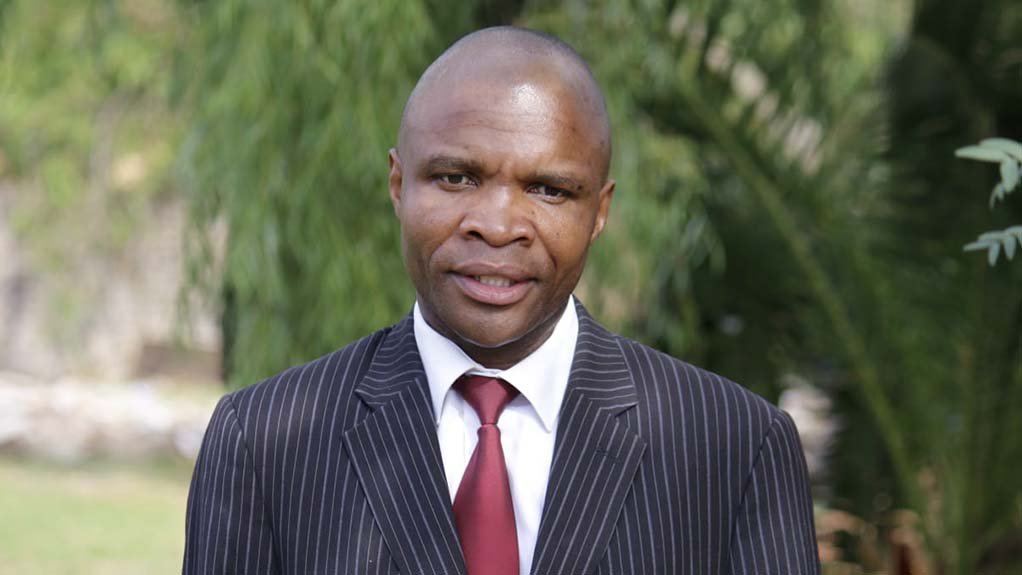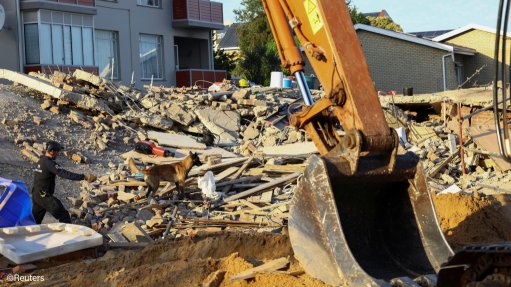Patel's misguided industrial policy hindrance to Black Industrialists
This article has been supplied by the author and has not been written or solicited by Creamer Media. It may be available only for a limited time on this website.
Authored: Bongani Mankewu
Blurb: Minister Patel is phony and plays Machiavellian when he blames the failure of state-owned enterprises for the failure of black industrialists.
President Cyril Ramaphosa provided an indifferent cause-and-effect explanation of the Black Industrialists' sad failure at the recent Black Industrialist and Exporters' Conference, which took place in Sandton, Johannesburg, on March 20, 2024. There was a purposeful deception in the analysis, a lack of historicity concerning industrialization, and a lack of edification about the status of the economy.
In the past, just before democracy was established, the Macroeconomic Research Group (MERG) published a report titled "Making Democracy Work: A Framework for Macroeconomic Policy in South Africa." The report recognized that industrial development has the potential to increase overall economic productivity, create jobs, produce necessities for domestic consumption, improve trade balances, encourage foreign direct investment, and lessen balance of payments constraints. There was an opportunity during the same period to establish a Sovereign Wealth Fund backed by mineral resources to finance the Reconstruction and Development Programme (RDP). A properly funded RDP, in tandem with a committed, competent government, would have been the ideal means of bridging South Africa's racial divide.
In part, because industry encompasses a diverse range of economics, the MERG report acknowledged that developing an industrial policy can be very difficult. Nonetheless, the fact that industrial and macroeconomic goals are still not coherent in 2024 is not rational, nor is it morally acceptable. Minister Patel is phony and plays Machiavellian when he blames the failure of state-owned enterprises for the failure of black industrialists, rather than looking at the deindustrialization crisis in South Africa as a whole. Globally, industrial policy and industrialization have gained importance. The World Bank, which has long opposed active industrial policy, is one organization that has partially expressed this. This has happened in the context of the global financial crisis and the ensuing great recession, which have highlighted the obvious unsustainability of a finance-led economic model for developed countries and the disappointing outcomes of traditional policy reforms in several developing countries since the late 1980s.
Due to its peculiar adherence to the principles of orthodox economic policy, which is based on the idea that markets are rational and ought to be free, South Africa has not established a cogent industrial policy since its founding. The country sold itself to the markets in exchange for these idealized realities under the Washington Consensus because of its fixation on these orthodox directives.
It has been determined that the "minerals energy complex" (MEC), a conglomeration of key industries propelling South Africa's industrialization, is the predominant system through which capital accumulation has taken place. Industrialization during the Apartheid era was primarily focused on the "upstream" processing of commodities derived from minerals and other natural resources. Coherent policy and sufficient demand did not promote more labor-intensive and value-adding "downstream" manufacturing sectors that were not globally competitive. The South African government ignored the ten recommendations in the 1993 MERG report, both in terms of strategy and policy. Because of this omission, the Magnum Opus RDP was abandoned as the government's contemptuous National Development Plan. President Ramaphosa and Minister Patel arbitrarily blamed some imaginary phantoms for the economy's subpar performance and negligent governance.
Most of South Africa's democratic history has seen traditional economic reforms dominate the country's economic agenda. A step change in fixed investment was the specific objective of these reforms, with the hope that this would lead to higher employment and growth across the board in the economy, including manufacturing. But there haven't been any noticeable or sustained gains in investment, growth, or employment as a result of these adjustments. A shift in industrial policy slowly emerged within the same time frame, lacking a clear direction.
Though the economy has experienced several significant shocks—the ongoing volatility of the currency, the global financial crisis, the Great Recession, and a shock to the price and supply of electricity domestically—the mobilization of the required support instruments has moved very slowly. A substantial amount of research suggests that for the success of industrial policy in South Africa, there needs to be much greater coherence and coordination between industrialization and macroeconomic objectives, which ought to include other policies affecting the entire economy. An in-depth analysis of South Africa's deindustrialization state is indispensable and must guarantee the prosperity and inclusivity of black industrialists.
Playing public relations with make-believe investment conferences that offer unrealistic expectations to desperate, trying entrepreneurs and aspiring industrialists is not helpful to anyone. Practical clarity regarding the localization of industrial products, a review of the Development Finance Institutions' mandate to refrain from being commercial banks, and the implementation of infrastructure through innovative financing and funding models that are mostly in abundance in South Africa are all necessary components of an industrial policy, along with macroeconomic policies.
Bongani Mankewu is the Director of the Infrastructure Finance Advisory Institute.
Comments
Announcements
What's On
Subscribe to improve your user experience...
Option 1 (equivalent of R125 a month):
Receive a weekly copy of Creamer Media's Engineering News & Mining Weekly magazine
(print copy for those in South Africa and e-magazine for those outside of South Africa)
Receive daily email newsletters
Access to full search results
Access archive of magazine back copies
Access to Projects in Progress
Access to ONE Research Report of your choice in PDF format
Option 2 (equivalent of R375 a month):
All benefits from Option 1
PLUS
Access to Creamer Media's Research Channel Africa for ALL Research Reports, in PDF format, on various industrial and mining sectors
including Electricity; Water; Energy Transition; Hydrogen; Roads, Rail and Ports; Coal; Gold; Platinum; Battery Metals; etc.
Already a subscriber?
Forgotten your password?
Receive weekly copy of Creamer Media's Engineering News & Mining Weekly magazine (print copy for those in South Africa and e-magazine for those outside of South Africa)
➕
Recieve daily email newsletters
➕
Access to full search results
➕
Access archive of magazine back copies
➕
Access to Projects in Progress
➕
Access to ONE Research Report of your choice in PDF format
RESEARCH CHANNEL AFRICA
R4500 (equivalent of R375 a month)
SUBSCRIBEAll benefits from Option 1
➕
Access to Creamer Media's Research Channel Africa for ALL Research Reports on various industrial and mining sectors, in PDF format, including on:
Electricity
➕
Water
➕
Energy Transition
➕
Hydrogen
➕
Roads, Rail and Ports
➕
Coal
➕
Gold
➕
Platinum
➕
Battery Metals
➕
etc.
Receive all benefits from Option 1 or Option 2 delivered to numerous people at your company
➕
Multiple User names and Passwords for simultaneous log-ins
➕
Intranet integration access to all in your organisation





















